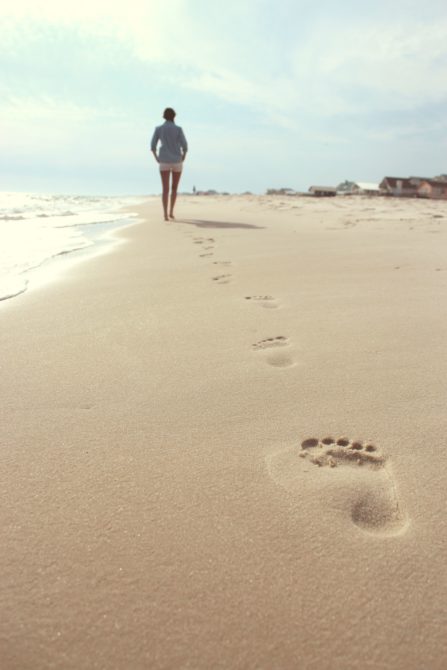
L’océan et l’homme sont liés
Où que nous vivions, l’océan nous influence tous. À leur tour, nos actions, avec plus de 7 milliards d’entre nous, s’additionnent pour influencer l’océan.
L’océan nous fournit des éléments essentiels, comme l’oxygène et l’eau douce, et il nous nourrit. Même si nous ne mangeons pas de fruits de mer, la farine de poisson est utilisée pour nourrir la volaille et le porc, ainsi que pour fertiliser biologiquement les cultures depuis des millénaires.
L’océan permet à l’homme de commercer et donne à beaucoup d’entre nous des emplois dans les secteurs de la pêche, du commerce, du transport maritime, du tourisme et des voyages.
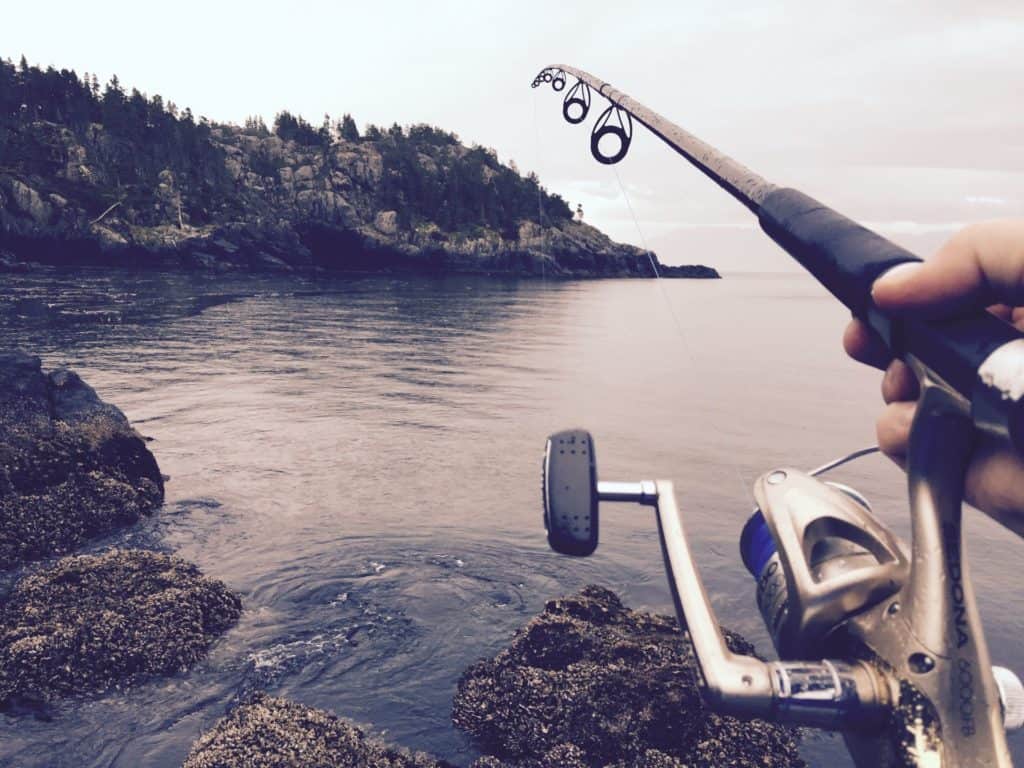
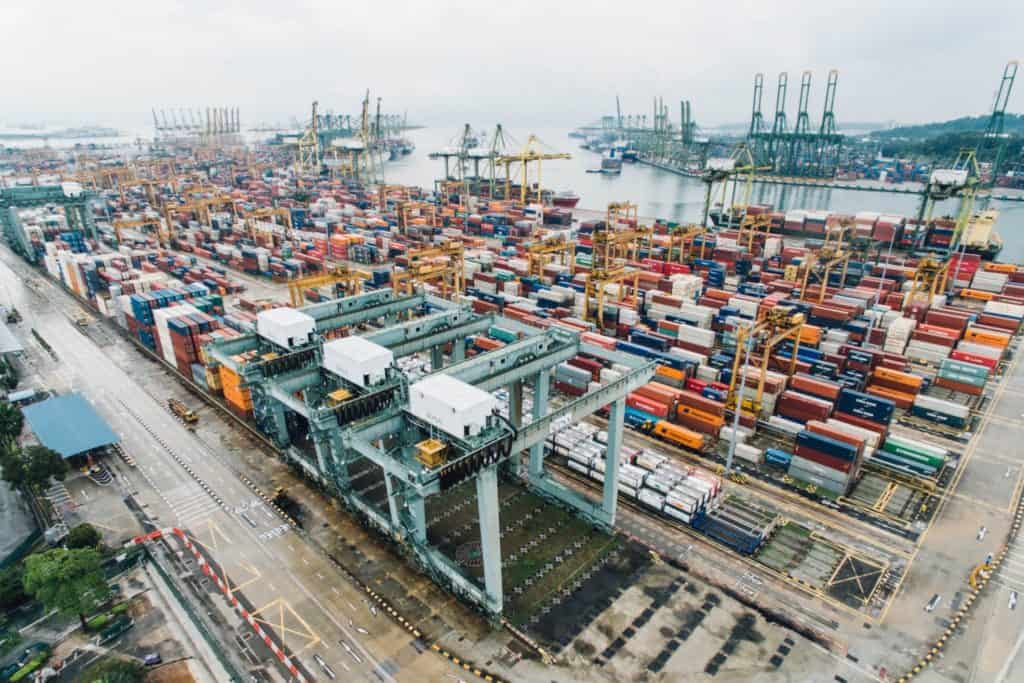
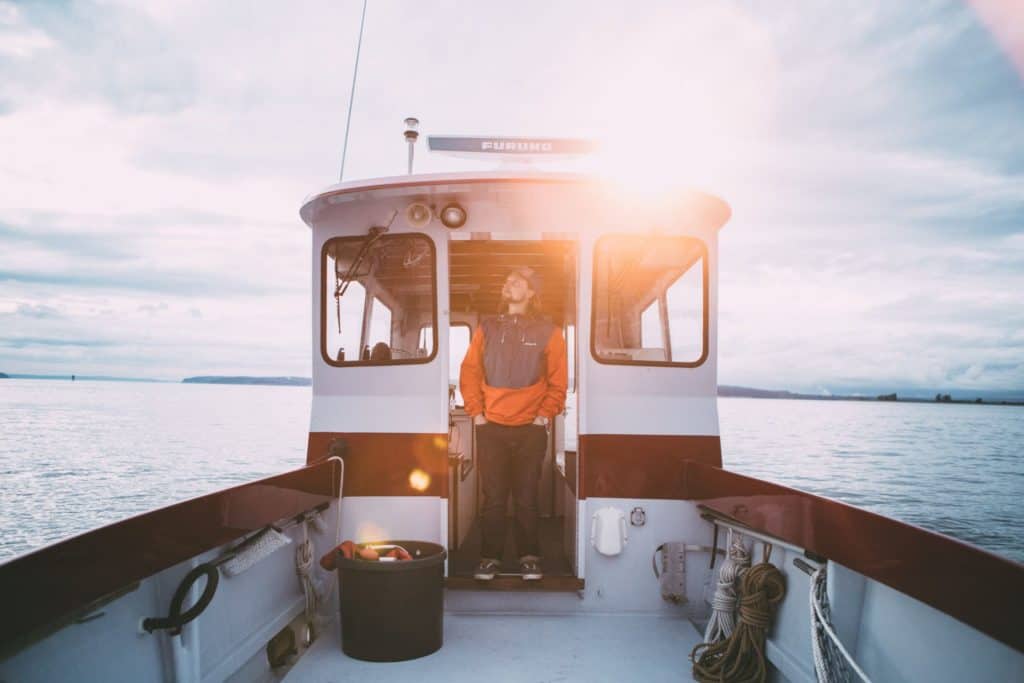
L’océan est également une source de minéraux, de ressources énergétiques et de médicaments.
Il nous permet de pratiquer des sports et des activités en mer. Elle peut contribuer à inspirer les gens, comme une muse, ou à les aider à se détendre, comme un spa.
Le tourisme marin a permis à des personnes du monde entier d’avoir une interaction étroite avec l’océan.
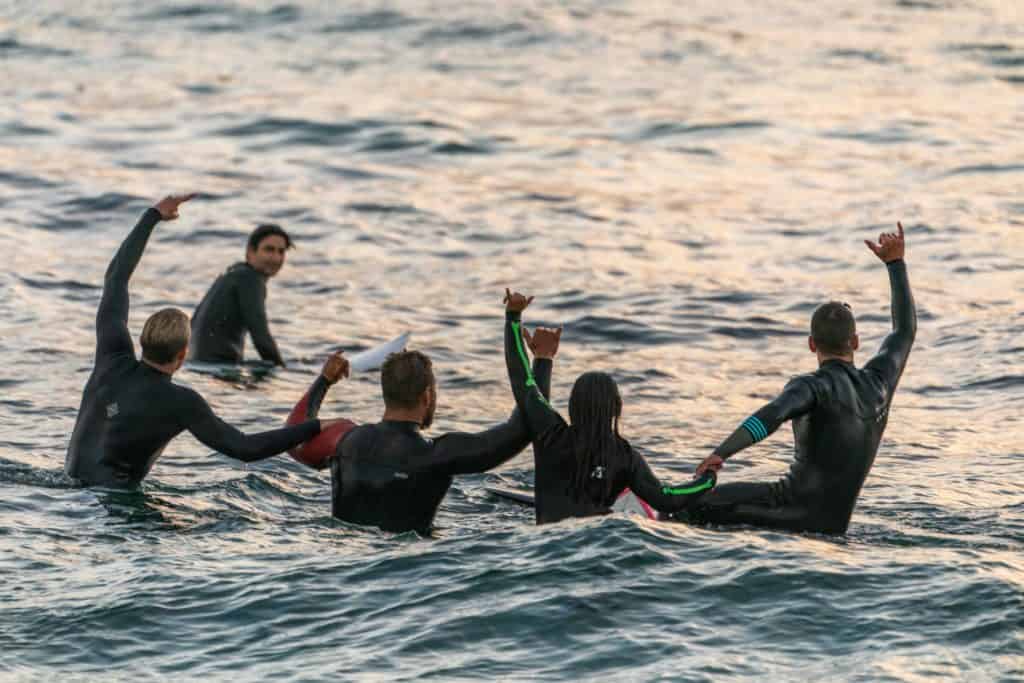
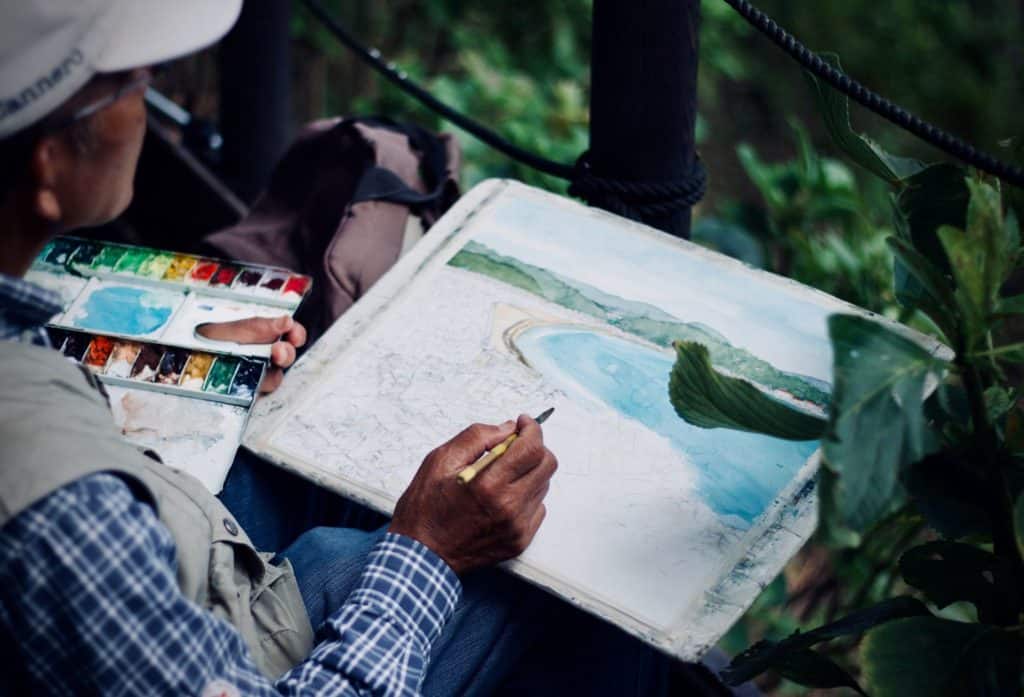
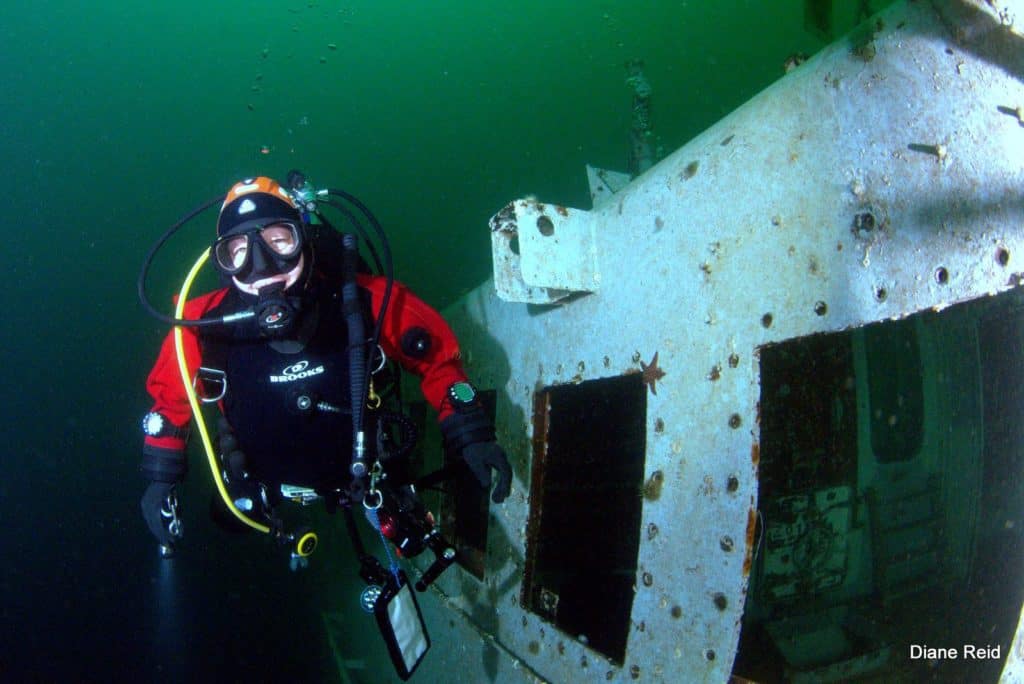
L’océan est utilisé dans presque tous les aspects de notre vie quotidienne.
Une grande partie de la population mondiale vit dans les zones côtières ou à proximité. Ces concentrations de personnes rendent encore plus importante la nécessité de restaurer et de protéger les écosystèmes adjacents. Nous commençons à mieux comprendre la protection que les systèmes naturels nous offrent contre les risques marins tels que l’élévation du niveau de la mer, les cyclones, les ouragans, les ondes de tempête et les tsunamis.
La reconstruction d’habitats de zones humides, la suppression de barrages et l’intégration des connaissances locales dans la prise de décision sont testées et, d’après les premiers résultats, semblent prometteuses. Les gens collaborent pour inclure les besoins des systèmes naturels dans la conception des côtes construites, ce qui nous donne une chance d’améliorer la façon dont nous durcissons, draguons et construisons les havres et les ports.
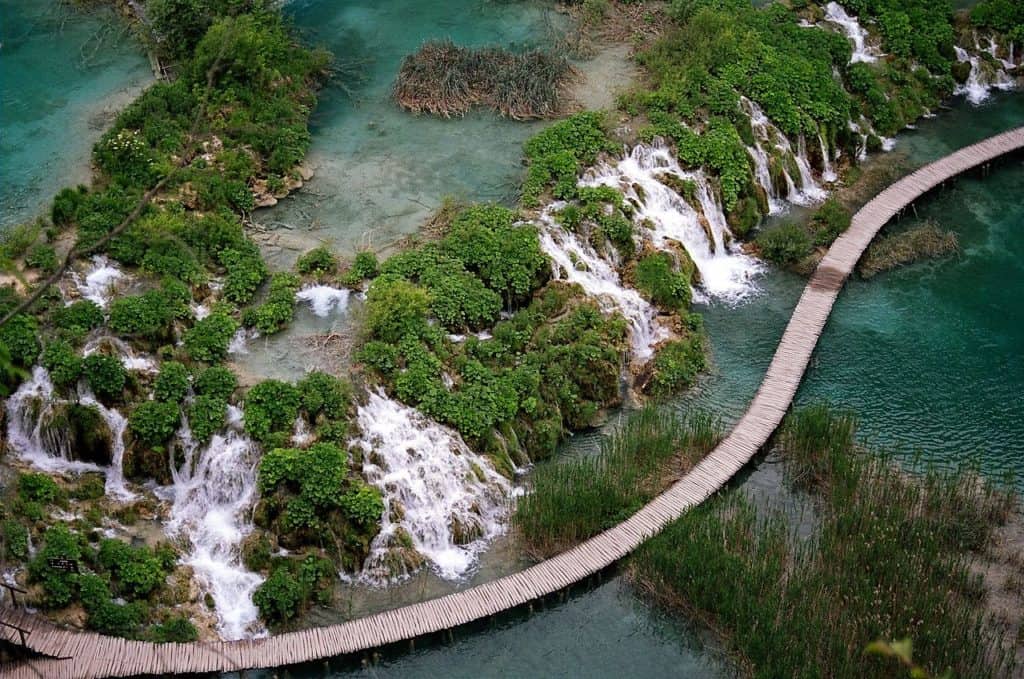
Dans notre vie quotidienne, il est facile d’oublier que nous ne sommes pas séparés de la nature, mais que nous en faisons partie. Avec une population humaine en constante augmentation, le besoin d’un avenir durable se fait de plus en plus sentir.
Examinons quelques-uns des principaux effets négatifs de l’activité humaine sur les océans. Nous avons déjà parlé de l’acidification des océans causée par la combustion effrénée des combustibles fossiles. Il existe certaines formes de pollution que l’homme provoque mais qu’il ne peut pas voir.
Avec le réchauffement de l’eau, la glace de mer fond à un rythme constant depuis quelques années. Si ce phénomène est dommageable pour les animaux tels que les morses et les ours polaires, dont la survie dépend de la glace de mer, il est en revanche utile pour l’homme. La diminution de la glace de mer facilite la circulation des bateaux dans l’Arctique, ce qui n’était pas possible auparavant. Cela représente un nouveau défi pour la vie marine de l’Arctique : Pollution sonore
La pollution sonore se produit lorsque nous émettons des bruits excessifs ou forts dans l’eau. La pollution sonore perturbe la communication entre les animaux, qui comptent sur la communication pour se retrouver dans les eaux sombres. C’est particulièrement vrai pour les bélugas, qui s’appuient sur les sons acoustiques pour communiquer entre la mère et les baleineaux.
La pollution sonore peut également causer des dommages physiques à l’ouïe. Croyez-le ou non, les poissons ont des oreilles. Et le son est beaucoup plus fort dans l’eau que sur terre. La pollution sonore est peut-être invisible, mais elle peut être très dangereuse.
Quelles solutions pouvez-vous imaginer pour réduire la pollution sonore et aider les animaux de l’Arctique ? Vous pourriez peut-être concevoir un nouveau moteur de bateau silencieux. Vous pourriez aussi découvrir les zones les plus fréquentées par les bélugas afin de créer des lois pour protéger ces zones de la circulation des bateaux. Les solutions sont possibles, mais des recherches supplémentaires et des actions décisives sont nécessaires pour faire la différence.
Cela commence par vous, dans votre vie quotidienne.
L’une des façons de faire la différence dans votre vie quotidienne est de choisir des options alimentaires durables. Le terme “durable” signifie que vous prenez ce dont vous avez besoin mais que vous laissez suffisamment de ressources aux générations futures pour qu’elles puissent satisfaire leurs besoins.
La surpêche ou les pratiques de pêche non durables constituent un problème courant aujourd’hui. La pêche durable consiste à utiliser des méthodes qui ne prennent que les poissons que vous avez l’intention de pêcher, à ne prendre que ce dont vous avez besoin et à laisser les organismes dans l’océan pour maintenir les populations sauvages afin que nous puissions continuer à mettre du poisson dans nos assiettes. Au Canada, vous pouvez consulter le programme Ocean Wise Sustainable Seafood. Recherchez le symbole Ocean Wise pour vous assurer que vous consommez des produits de la mer issus d’une pêche durable.
En tant qu’espèce terrestre, nous avons été un peu lents à comprendre l’importance de l’océan dans notre vie et l’influence de nos activités sur l’océan. Même s’il nous semble éloigné et sans lien avec notre vie quotidienne, l’océan nous concerne tous. L’eau descend les pentes. Ce que nous jetons dans les égouts se dirige vers l’océan, tout comme ce que nous rejetons dans l’air.
Plus nous en apprenons sur les liens qui unissent les océans, plus nous nous interrogeons sur ce que nous devons savoir et faire pour assurer un avenir durable. Un avenir qui repose sur l’océan. Nous avons tous la responsabilité de prendre soin de l’océan, de sa vie et de ses systèmes, qui rendent possible toute vie sur Terre.
Grâce à ces connaissances, les êtres humains peuvent travailler ensemble pour atteindre les objectifs de développement durable des Nations unies. Grâce à notre compréhension de l’océan, nous pouvons travailler à la réalisation de ces objectifs :
14.1 D’ici à 2025, prévenir et réduire de manière significative la pollution marine sous toutes ses formes, en particulier celle due aux activités terrestres, y compris les débris marins et la pollution par les nutriments.
14.2 D’ici à 2020, gérer et protéger durablement les écosystèmes marins et côtiers afin d’éviter des effets néfastes importants, notamment en renforçant leur résilience, et prendre des mesures pour les restaurer afin que les océans soient sains et productifs.
14.3 Réduire au minimum les effets de l’acidification des océans et y remédier, notamment en renforçant la coopération scientifique à tous les niveaux
14.4 D’ici à 2020, réglementer efficacement l’exploitation et mettre fin à la surpêche, à la pêche illégale, non déclarée et non réglementée et aux pratiques de pêche destructrices, et mettre en œuvre des plans de gestion fondés sur des données scientifiques, afin de reconstituer les stocks de poissons dans les plus brefs délais, au moins à des niveaux permettant d’obtenir un rendement maximal durable tel que déterminé par leurs caractéristiques biologiques.
14.5 D’ici à 2020, conserver au moins 10 % des zones côtières et marines, conformément au droit national et international et sur la base des meilleures informations scientifiques disponibles.
14.6 D’ici à 2020, interdire certaines formes de subventions à la pêche qui contribuent à la surcapacité et à la surpêche, éliminer les subventions qui contribuent à la pêche illégale, non déclarée et non réglementée et s’abstenir d’introduire de nouvelles subventions de ce type, en reconnaissant qu’un traitement spécial et différencié approprié et efficace pour les pays en développement et les pays les moins avancés devrait faire partie intégrante des négociations de l’Organisation mondiale du commerce sur les subventions à la pêche.
14.7 D’ici à 2030, accroître les avantages économiques que les petits États insulaires en développement et les pays les moins avancés tirent de l’utilisation durable des ressources marines, notamment par la gestion durable de la pêche, de l’aquaculture et du tourisme.
14.A Accroître les connaissances scientifiques, développer les capacités de recherche et transférer les technologies marines, en tenant compte des critères et lignes directrices de la Commission océanographique intergouvernementale sur le transfert de technologie marine, afin d’améliorer la santé des océans et de renforcer la contribution de la biodiversité marine au développement des pays en développement, en particulier des petits États insulaires en développement et des pays les moins avancés.
14.B Permettre aux petits pêcheurs artisanaux d’accéder aux ressources marines et aux marchés
14.C Renforcer la conservation et l’utilisation durable des océans et de leurs ressources en mettant en œuvre le droit international tel qu’il est reflété dans la CNUDM, qui fournit le cadre juridique pour la conservation et l’utilisation durable des océans et de leurs ressources, comme le rappelle le paragraphe 158 de L’avenir que nous voulons.
Posted January 17, 2022 by Rosemary Newton
